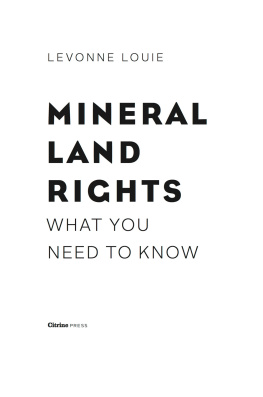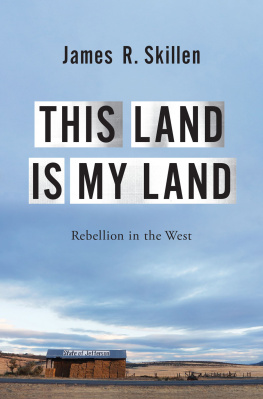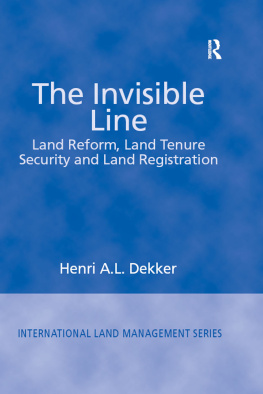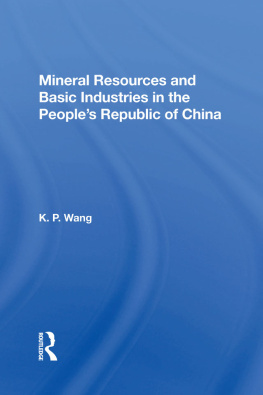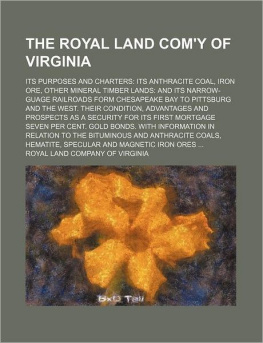Introduction
Why Have I Written This Book?
T HE PURPOSE OF this book is to provide an overview of one of the basic components of the oil and gas industry: mineral land. Like any industry or profession, the oil and gas industry has a lot of jargon, but I have tried to create a book that is free of jargon and easy for the average reader to understand, whether or not you are in the oil and gas industry.
My original goal was to explain mineral land rights so that landowners could better understand what they have and what they can do with their mineral rights. That is still a major goal, but as I was writing the book and interacting with people in the oil and gas industry on a daily basis, I realized there is also a need within the industry for clarification of some basic concepts regarding mineral land. With this knowledge, people working in the industry can better understand the issues that can arise with mineral land and how these issues impact their jobs every day.
I will only briefly discuss certain aspects of the surface of the land, as there are many resources available to the surface landowner. There is far less information about mineral landholdings, and that is the focus of this book. One reason there is so little information for the mineral landowner is that few people actually own mineral rights compared to the number of people who own surface rights. In Canada, most mineral rights are held by the government, which is also known as the Crown.
My hope, however, is that if people learn about how this initial, essential piece of the oil and gas industry works, they will better understand the industry. Without mineral land rights, companies are not able to drill and explore for oil and gas. While it is true that we need other professionals such as geologists, geophysicists, engineers, and field people to actually find and extract oil and gas, they cannot do their jobs unless their companies hold mineral land rights. This book will help people become better-informed investors, employees, Lessors, Lessees, and working interest partners.
I have written this book primarily for landowners (both mineral and surface), but other readers will find valuable information here as well, including people who work in the oil and gas industry but do not work in the land area, First Nations communities and their administrators, regulatory bodies, people who work with oil and gas companies in advisory roles such as auditors and lawyers, and people who are interested in entering the industry (whether young people at the high school, college, or university level or people looking to make a career change). Each of these groups may have heard about mineral rights or land rights issues and how they impact the area they live, work, or are interested in, but this book will provide further information from an operational perspective.
About Me
Even though I have lived in Calgary, Alberta (the energy capital of Canada), since I was a year old, I basically knew nothing about the oil and gas industry when I was growing up. Like many young people of Asian descent, I focused my studies at the University of Calgary on a profession: in my case, medicine. About three and a half years into a four-year Bachelor of Science program, I decided that was not where I wanted to be. I had interests in so many areas that I didnt want to focus on one. Thankfully, the medical school interviewers saw this too, and I did not attend medical school. After completing my Bachelor of Science, I spent the next two years getting a Bachelor of Commerce degree.
The summer between those two years was very important to my future career, as I was introduced to the oil and gas industry. I spent the first half of that summer working with the federally sponsored Hire-a-Student program in Calgary, and I was fortunate to land a job for the last half of the summer with a major oil and gas firm in Calgary that was looking for a mathematician. The job actually involved inputting data into a hand-held programmable calculator to arrive at numbers that were then input into a computer in order to do static corrections on seismic data.
If that sounds foreign to you, thats exactly how it sounded to me at the time. However, I learned a lot that summer about geophysics and its application to finding oil and gas. When the summer was over, I continued working at the company thirty-five hours per week while completing my Bachelor of Commerce. During that time, I learned more about the oil and gas industry in general as well as the different areas in which a person could work. In the last semester of my degree program, I was fortunate to receive two job offers: a Junior Geophysicist position with the firm I was working for and a Junior Landman position with a major integrated oil and gas firm. Its always good to have choices.
I had only a general idea of what a landman did as a result of meeting some landmen at the company I worked for, whereas I was more familiar with the geophysicist position. My company was willing to train me in this area due to the fact that I had a Bachelor of Science. However, I chose to take the Junior Landman position, as I felt it would be a good opportunity to combine my technical skills and interests with my people skills and interests. This has proven to be true in my career and I have never regretted my decision.
I have spent over thirty-five years as a landman in one of the most exciting industries you can imagine. There are constant changes in the industry: whether they are advances in technology, the types of resources we pursue, how we extract the resources, or the people and their roles in the industry. I have worked for major integrated oil and gas companies (which not only explore for resources but refine them and sell them to the end user), for intermediate Explorers and Producers, for start-up junior companies, and in my own consulting company.
I have been fortunate to have had the opportunity to work in all areas of land: surface, administration, contracts, and negotiations. I have also worked in other areas of the oil and gas industry, such as natural gas marketing, hard rock minerals, corporate administration, and investor relations. I have worked closely with other landmen (mineral, surface, and brokers), geologists, geophysicists, engineers (drilling, completion, production, and reservoir), government regulators, gas marketers, accountants (production, joint interest, and controllers), bankers, community and stakeholder relations people, business developers, and a multitude of lawyers (oil and gas, corporate, securities, regulatory, real estate, and litigators, to name a few). Land is one of the few disciplines that allow an individual to interact with and learn from multiple areas within the energy industry, and Ive taken advantage of that to learn from everyone Ive interacted with.
Do You Know What I Know?
During my thirty-five-plus-year career, I have learned a number of things about the oil and gas industry in general and about land rights specifically.
As a landowner:

